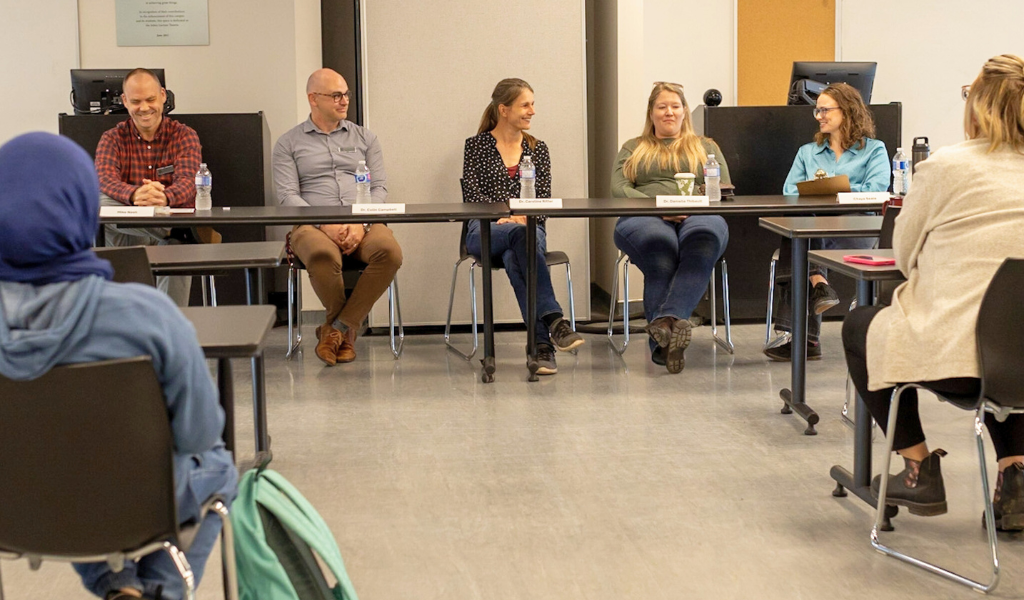UPEI researchers share findings of mental health research project with veterinary students

As part of her doctor of psychology (PsyD) dissertation, Chaya Seale, a graduate student at the University of Prince Edward Island (UPEI), hosted a panel discussing the mental health of veterinarians for students and faculty at the Atlantic Veterinary College (AVC) on October 10.
Over the past year, Seale interviewed 11 veterinarians from across Prince Edward Island (PEI), collecting their first-hand accounts about difficulties they faced in the early years of their careers and their perseverance while navigating clinical practice.
“What I learned from the people I interviewed was that the challenges they are facing today are not always the ones they were expecting when they were in vet school,” Seale said. “For example, they expected client communication to be a challenge, but actually it was also the difficulties communicating with colleagues or dealing with ethical or moral dilemmas and how isolating that can be.”
Seale’s research, which is part of a Canada-wide study, is co-supervised by UPEI faculty members Dr. Caroline Ritter, assistant professor of epidemiology and Canada Research Chair in Social Epidemiology for Healthy Animals, and Dr. Yoshiyuki Takano, assistant professor of psychology.
Ritter, a veterinarian herself, said studying mental health in veterinary medicine is important, especially if it can help others in the profession.
“Veterinarians are caring and compassionate over-achievers,” she said. “When things don’t go as well as we hoped, we take it personally. Instead of focusing on the 100 animals we helped this week, we focus on the one we couldn't help.”
Ritter said the transition from being a veterinary student to working in clinical practice can be challenging and can result in poor mental well-being. She has noticed that many veterinarians leave to find jobs outside of clinical practice or outside of veterinary medicine entirely.
“Finding solutions may not be immediate, but starting with informing students about the challenges in the first years of practice is a good first step in preparing them for life outside of the AVC.”
That’s exactly where Seale and her colleagues began. They shared the stories from the veterinarians they interviewed about the early stages of their careers during the panel discussion. In addition to Ritter, the panel included Dr. Colin Campbell, staff psychologist at the Psychology Training Clinic at UPEI; Dr. Danielle Thibault, a graduate of AVC; and Michael Nash, a third-year doctor of psychology student. After sharing the stories, the panelists discussed the challenges that the veterinarians shared with the research team and gave the students an opportunity to ask questions.
“The veterinarians I interviewed really cared, especially about sharing their knowledge and wanting it to be impactful,” Seale said. “It was really meaningful for me to be involved in this process. Sharing the stories back with the participants, they realized they have come so far. It felt good for me to be part of that.”
The panel was well received by the many students and faculty in attendance. The research team is hoping to have more panels this fall.
Seale’s dissertation is part of a larger project with two PhD students, one at UPEI and one at the Ontario Veterinary College in Guelph. All the information will be combined, and the researchers will create a training workshop and pilot it with veterinarians and veterinary students. The hope is to eventually offer this training in veterinary colleges in Canada.